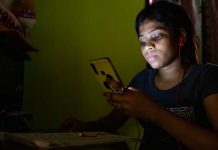The release of contaminated water from the Fukushima Dai-ichi nuclear plant has dominated recent discussions between representatives of Pacific island nations and Japan, with the government in Tokyo offering reassurances that the water will be treated to remove almost all harmful nuclides before it is pumped into the Pacific.
The issue was top of the agenda when a high-level delegation from the Pacific Islands Forum (PIF) traveled to Tokyo to meet with Japanese Prime Minister Fumio Kishida. The delegation was headed by Mark Brown, the prime minister of the Cook Islands and incoming chair of the PIF, and also included Kitlang Kabua, foreign minister of the Marshall Islands, and Henry Puna, PIF secretary general.
In a meeting on 02 February, Kishida also welcomed David Panuelo, president of the Federated States of Micronesia, to his official residence for talks that similarly focused heavily on the situation at the Fukushima plant.
Island nations and the Pacific Islands Forum have in the past expressed deep concern about the plan to release water from the plant, which was crippled in the March 2011 Great East Japan Earthquake and subsequent tsunami. Three of the facility’s six reactors suffered meltdowns, contaminating vast swathes of surrounding countryside and rural communities with dangerously high levels of radiation.
For nearly 12 years, water that is pumped onto the reactor vessels to keep them cool has been building up in hundreds of steel tanks at the site. The water was initially contaminated with as many as 63 radioactive materials, including strontium and ruthenium, but Japanese authorities insist the Advanced Liquid Processing System (ALPS) that has been installed at the plant is able to reduce levels of 62 of the nuclides to below stipulated regulatory standards.
The only nuclide that cannot be removed is the relatively benign tritium, which experts say poses virtually no danger to the environment or human health.
And despite their previous reservations, the Pacific island leaders have been convinced of the safety of the water that will start to be released as early as this spring.
The delegation met Foreign Minister Yoshimasa Hayashi on Feb. 6, with the minister expressing his gratitude for Japan’s close ties with the Forum over the last two decades, saying the organization “has been playing an important role in promoting effective cooperation with all Pacific island countries.”
Hayashi underlined the importance Tokyo places on revitalizing areas in north-east Japan that were devastated by the 2011 earthquake and explained the importance of releasing water that has been treated into the Pacific. He emphasized that all measures are being taken to ensure the water poses no threat to human life or the environment.
The release is being conducted with the understanding and support of the International Atomic Energy Agency, he said, with assessments examined by the IAEA indicating that the exposure level from water released from Fukushima will be as little as 0.0001 millisieverts a year. In comparison, average annual background radiation in Japan is 2.1 mSv.
Japan has also been keen to point out that releasing water with low levels of radiation is accepted practice around the world, with the amount of highly diluted tritium scheduled to be released from the Fukushima facility far lower than other nuclear plants.
The plan calls for the discharge of 22 trillion becquerels of tritium a year, significantly less than the amounts released by plants in other parts of the world.
After treatment with ALPS and dilution, one liter of water released from the Fukushima plant will include a maximum of 1,500 becquerels of tritium. Based on international recommendations, the legal limit for tritium in water in Japan stands at 60,000 becquerels per liter. According to the World Health Organization, the safe level of tritium for drinking water is 10,000 becquerels per liter.
In a joint statement released after Kishida held talks with Panuelo, the two leaders said their talks had “increased the FSM’s trust in Japan’s intentions and Japan’s technological capabilities in not harming our shared oceanic assets and resources.”
In an address to the United Nations General Assembly in New York in September 2022, Panuelo expressed his “gravest concern” over the release of the water.
The FSM leader’s visit to Tokyo came after China in December accused Japan of being “highly irresponsible” for pushing ahead with the release of the treated water.
In a press conference at the Foreign Ministry on 14 December, spokesman Wang Webin said, “Japan must not start discharging the nuclear-contaminated water into the ocean before having full consultations.”
Criticism of Tokyo’s actions are symbolic of the deepening rivalry between China and Japan, said Stephen Nagy, an associate professor of international relations at Tokyo’s International Christian University.
“Japan has had a long-standing interest in the Pacific and its island states for a number of reasons, including the resources that are available, but this desire to keep and build on those relationships is also now a security issue,” Nagy told The Pacific Island Times.
“These nations are a critically important piece of the broader geopolitical puzzle and Japan is very concerned that more governments in the region, such as the Solomon Islands, do not form closer ties to China,” he said.
Japan has been a major provider of official aid and economic assistance to the nations of the Pacific, Nagy said, adding that Hayashi’s reiterated commitment to the 2050 Strategy for the Blue Pacific Continent in his meeting with the PIF leaders was designed to reassure them that the assistance will continue to flow.
One key area that was mentioned was climate change and the impact it is having on the low-lying communities of the Pacific.
SOURCE: PACIFIC ISLAND TIMES/PACNEWS
















